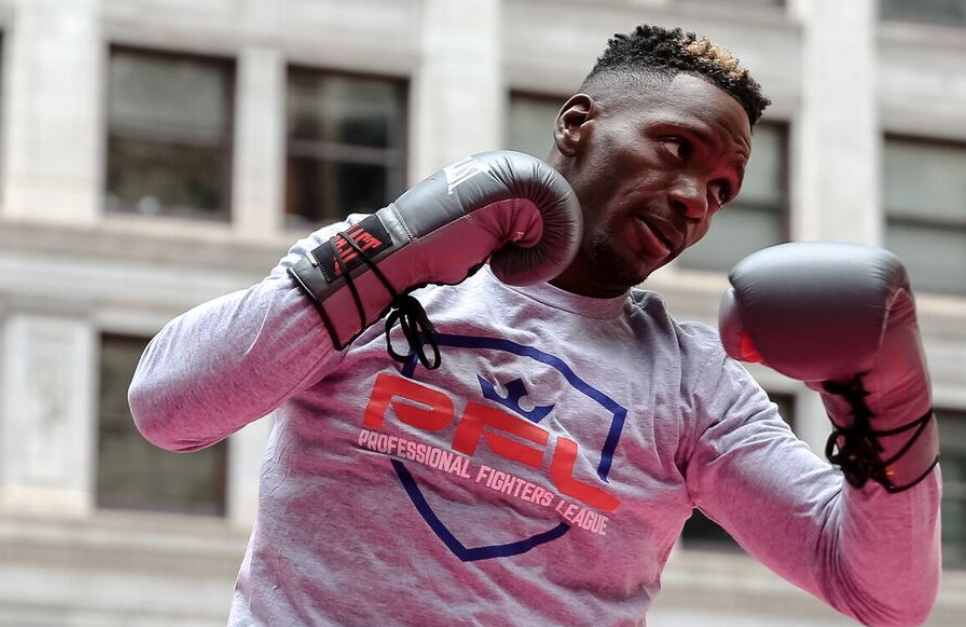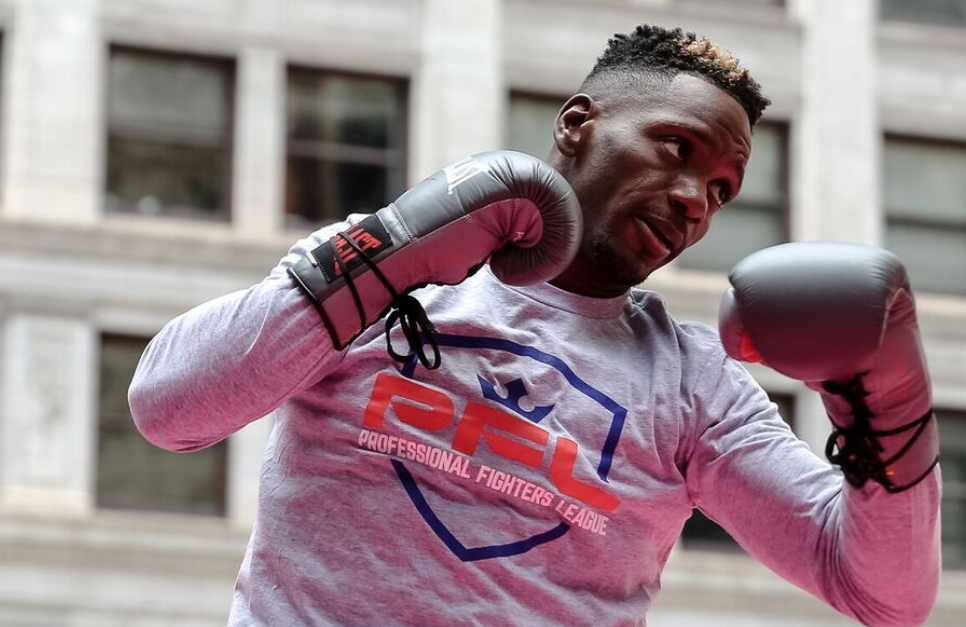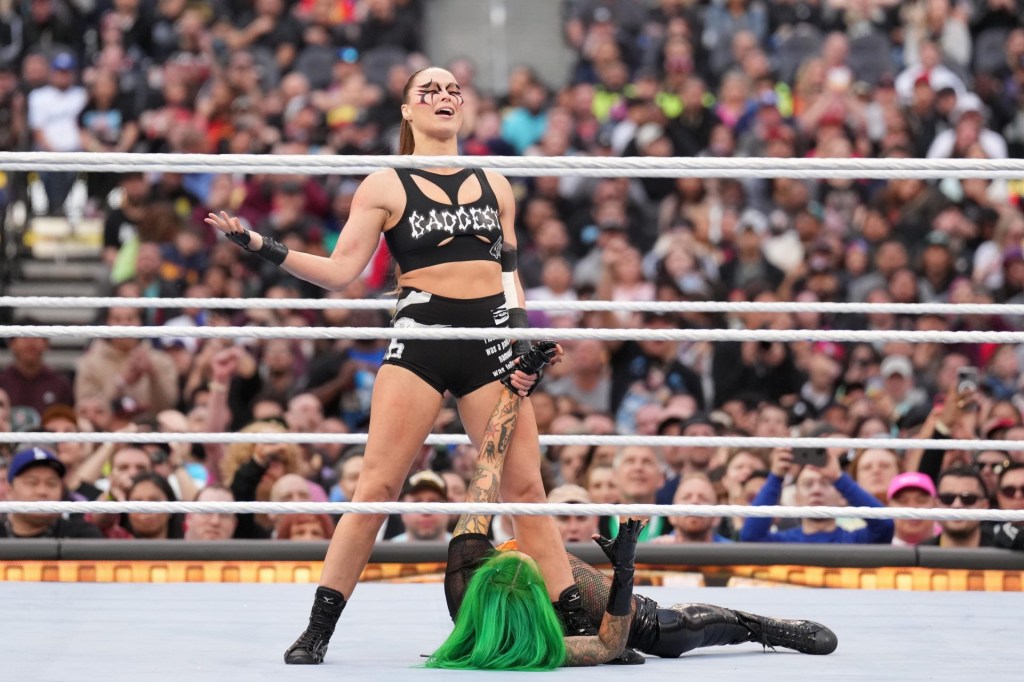
The PFL hopes its new take on the sport will stimulate more interest. (Photo via the PFL)
You may be familiar with UFC, Bellator, Boxing, and WWE (not to mention the playground skirmishes that usually go viral on Instagram). However, what Carlos Silva and his team at the Professional Fighters League are fighting to change the game — literally.
Bringing his extensive background in sports, media, and entertainment, Silva got involved with the organization three years ago as league president when it was still known as the World Series of Fighting.
What drew Silva to the opportunity is that “Mixed Martial Arts (MMA) is one of the fastest growing sports in the world, which you don’t truly realize until you ‘get in.’” Yet he quickly realized through his interactions with business partners and industry peers that most considered what he and the World Series of Fighting did to be a “promotion,” similar to boxing or UFC Pay-Per-View.
Silva wanted to remove the organization from that stigma.
“There are certainly great events, but they’re just that — events put together by a promoter that sets the matchups, timing, location etc., arbitrarily to draw the most attention,” Silva said. “Other MMA and fighting organizations are built around the idea of putting appealing “cards” together, hyping the stand-alone matches, airing on Pay-Per-View, and then it’s over.”
[the_ad_group id=”948″]
That’s entirely different from the idea of a sport, built around the structure of a season-long league with regularly scheduled games where teams and athletes ultimately control the outcome. It’s that void that Silva believes the Professional Fighters League can fill, separating it from the pack in a rather crowded sports entertainment marketplace.
The biggest draw for fans is that “we’re really professionalizing MMA by creating a true-sport, league format that has a regular season, playoffs, and championships like any other sports league,” Silva said.
Here are some highlights of the new format:
- The PFL 2018 season features a true sport format, with 126 fights in seven regular-season events; a bracket-style win-or-go-home playoff; and a $10 million postseason prize pool (largest in MMA history).
- The season will begin with 12 athletes in each of six different weight-classes (72 fighters in all, from 13 different countries). Eight fighters from each class will earn their way into the playoff round, and one fighter in each division will earn the title of champion.
- All competitors will have to win two fights in one evening during the playoff round to advance to the championship event. Six fighters will take home a 2018 PFL Championship Belt and a $1 million prize purse.
Silva also covered the new rules and entirely different scoring system, but the most salient point is the reimagined format. “The PFL doesn’t save the best content for Pay-Per-View spectacles or promotions; it offers regular, continuous action for fans to follow and engage with,” Silva stated.
This gives the fighters, the athletes, a lot more agency in the outcome. Their performance determines their future, not orchestrated events determined by which matchups and bouts might garner the highest ratings.
“The fighters have really rallied around the format and understand the importance of getting a finish, (as opposed to a decision) earning them bonus points,” Silva explained.
The chirping and trash-talk has already started too. “It’s been great to see,” Silva said. “The fighters are already starting to get excited, jockeying around how many points they got in their first fight, bringing the talk to Facebook, Instagram, and Twitter.”
Excitement is definitely building, among both fans and even the fighters themselves. That’s what makes the PFL different. The league appeals not only to the UFC/MMA crowd, but also reaches the more casual general-sports-fan audience as well. It provides an accessible way for people that might not otherwise follow MMA to engage with the sport.
Similar to the World Cup, MMA is based on somewhat of a polarizing sport that casual fans in the U.S. might not typically be drawn to or know much about, but repackages it in an engaging, compelling way with a clear narrative, structure, and story to follow.
“Like many, I don’t watch soccer, but I do understand the format. Round-robin, brackets, point-based elimination — and we all love brackets.”
Want more content like this? Subscribe to our daily newsletter!
It’s that structure the PFL believes will lure an otherwise passive fanbase. “The more general fanbase will be compelled to follow the season, paying attention to points and the seeding, seeing how far local favorites can go, etc.,” Silva said.
The Professional Fighters League launched with its first event at the Hulu Theater in Madison Square Garden June 7, which Silva said was a huge triumph. “There were 4,800-plus people, lots of chanting, energy, passionate fans, great fights, and knockouts. One of the highlights even made it to “SportsCenter.” Fans got to see and share in a great sports moment.”
Unlike some other sports/entertainment options, the PFL provides an intimate, accessible, energetic environment — both at the venue itself and on social media.
Fans will also be able to follow the regular season every Thursday night on Facebook Watch and NBC Sports Network.
Silva described the process of choosing that avenue for the sports’ scheduling and distribution, explaining that “we worked with our partners, and determined that Thursdays in the summer are a really interesting night that we can really own. Thursday nights, people are typically more social and go out, might be drawn to an event, or happy hour at a bar and see PFL as great reason to get together and enjoy the entertainment.”
















